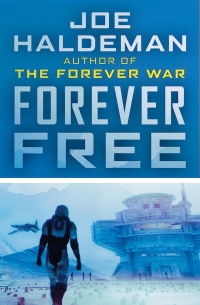Death Penalty by William Coughlin
 Sunday, February 26, 2017 at 8:17AM
Sunday, February 26, 2017 at 8:17AM 
First published in 1992; published digitally by Endeavour Press on June 10, 2016
Charley Sloan was a successful lawyer until his desire for bourbon overcame his desire to win cases. He’s back in court after selling shoes during a one-year suspension of his license. Taking a year off would be a professional death penalty for most lawyers, but Charley opened a scaled-down practice in a small town near Detroit and, after a headline-making victory, is starting to rebuild his flow of clients. After three failed marriages, he also needs to rebuild his life.
Death Penalty follows Charley’s attempts to help a series of clients in civil and criminal cases, including his representation of Doctor Death (always an unfortunate name for a physician), but the plot’s focus is on the appeal of a multi-million-dollar product liability verdict he has been hired to handle. He will get a percentage of the trial lawyer’s fee if he wins, providing a cushion he needs to restore his financial health. The trial lawyer has heard rumors that some judges on the Michigan Court of Appeals are open to bribes and thinks that would be the best way to assure success. Charley assures the lawyer that the rumors are untrue -- until he is approached by an intermediary who suggests otherwise.
Charley is easy to like. He’s smart, compassionate, funny, and humble. William Coughlin adds human drama to courtroom drama with Charley’s baby-step efforts to restore his life and dignity, including his tentative approaches to romance with a couple of different women. The small town atmosphere adds local color to the story and allows Charley to introduce a variety of likable supporting characters to the cast. Their lighthearted banter adds humor to the story.
Most legal thrillers milk the drama of trials. This one is unusual in its reliance on an appeal. An appellate argument doesn’t rely on theatrics, as do the best trials, but they can be just as intense. Coughlin conveys that effectively. Trials are more fun, however, and when Dr. Death gets charged with another murder, Charley handles the case in a small county where criminal trials are viewed as a sporting event.
Coughlin also conveys the criminal defense lawyer’s instinctive disdain for informants -- criminals who are supposedly helping the police when, in fact, they are only interested in helping themselves avoid full punishment for their own crimes. Informants reveal a remarkable disloyalty to former friends that makes everything they say or do suspect. Charley’s unwillingness to act as one, even at risk of being arrested, reflects the humanity that he nurtures in his heart. He knows, at the same time, that people who refuse to sacrifice their honor are usually sacrificed by the system -- by powerful people who (as the novel illustrates) take care of each other.
Death Penalty does not end with the kind of clever twist I always hope for in a legal thriller. I like the way the Dr. Death story resolves, but the conspiracy plot coasts to an easy conclusion that lacks suspense. That’s my only complaint about Death Penalty, and it is overshadowed by the novel’s merits.
Describing the courthouse where he spent most of his career, Charley says “It wasn’t the kind of place that inspired nostalgia any more than a rectal thermometer evoked happy memories for an overworked nurse.” Sentences like that provide more than adequate reason to recommend Death Penalty. A fun story and a likable main character make Death Penalty a good choice for fans of legal thrillers.
RECOMMENDED


